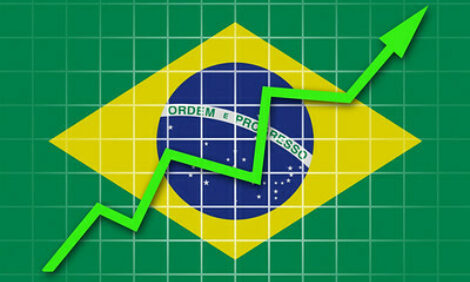



WPC 2012: 24th World Poultry Congress Opens in Salvador
BRAZIL - The opening ceremony of the 24th World Poultry Congress took place in Salvador in the state of Bahia yesterday, 5th August. The event marked the centenary of the very first congress. Senior editor, Jackie Liden, reports from the Congress.Representing more than 90 countries on all five continents, delegates gathered at the Convention Centre in the Brazilian city for the opening ceremony of the World Poultry Congress yesterday evening.
Australia’s Dr Bob Pym, president of the WPSA, welcomed the guests and delegates, explaining that this Congress is a special one, marking the centenary of the organisation. The International Association of Poultry Instructors, as it was then called, held its first meeting in 1912, attended by delegates from just 12 countries. Six years later, the World’s Poultry Science Association was formed, an organisation that now includes almost 8,000 members in 80 countries.
The development of the WPSA mirrors that of the Brazilian industry, in many ways, he said. The organisation has always had the goal of helping family farmers in developing countries to improve poultry production with technology and the latest science, aiming to make them self-sufficient in poultry meat and eggs, sustainably. Never has this help been more needed than in these days of high and volatile feed prices, he stressed, when developing countries are under greater pressure from the effects of drought and use of land for biofuel production.
Finally, Dr Pym joked that Brazil has clearly got its priorities right in hosting firstly the World Poultry Congress, followed by the World Cup in 2014 and the next Olympic Games two years later. He congratulated the organisers of this ‘Chicken Olympics’ and wishes all participants and enjoyable and successful Congress.
President of the Congress organising body, FACTA, Dr Edir da Silva, replied and welcomed the guests and delegates. He highlighted the development of the Brazilian poultry meat industry over the last decades to one that is now the world’s top exporter of this product, accounting for 40 per cent of the total volume of poultry meat graded across the world.
He identified the strong integrated supply chain in his country as the basis for this success, and stressed the need to support the many small family farms on which the industry depends, as an example of the sustainable growth that is vital for further expansion.
Francisco Turra, chairman of the Brazilian poultry producers and exporters association, UBABEF, offered a number of examples of the importance of poultry meat to the economy of his country. In 2011, exports reached 4.11 million tonnes, worth US$8.85 billion, or more than three per cent of the country’s total exports and went to 150 countries. Nevertheless, two-thirds of poultry meat produced is aimed at the domestic market. The industry provides employment for 1.2 million people in chicken production and a total of 3.5 million direct and indirect jobs.
The sustainability of the industry is important, he stressed, economically, in poultry health and for improving social conditions as it depends on successful partnerships between small farms and large organisations. Furthermore, production can be achieved with less environmental impact than in many countries, he said, adding the a chicken in Brazil has half the carbon dioxide emissions of one produced in the UK.
In his address, Minister of Agriculture, Mendes Ribeiro Filho, stated that the aims of President Dilma Rousseff’s government include self-sufficiency in corn (maize) by next year and the eradication of poverty over the coming decade.
Until the 1970s, Brazil imported many basic foods but it has applied the best technologies to triple food production over 20 years and food exports now contribute much to the country’s positive balance of trade.
Brazil is in an outstanding position to meet the demands of the world’s growing human population, the Minister said.
Last but by no means least to address the Congress opening ceremony was the Governor of the state of Bahia, Jaques Wagner. Salvador was Brazil’s first capital city, he said.
He encouraged investment in the poultry industry in the state, which currently provides just 12 per cent of the eggs and 60 per cent of the chicken consumed in Bahia. Brazil’s poultry industry is centred in the south, south-east and mid-west states.









